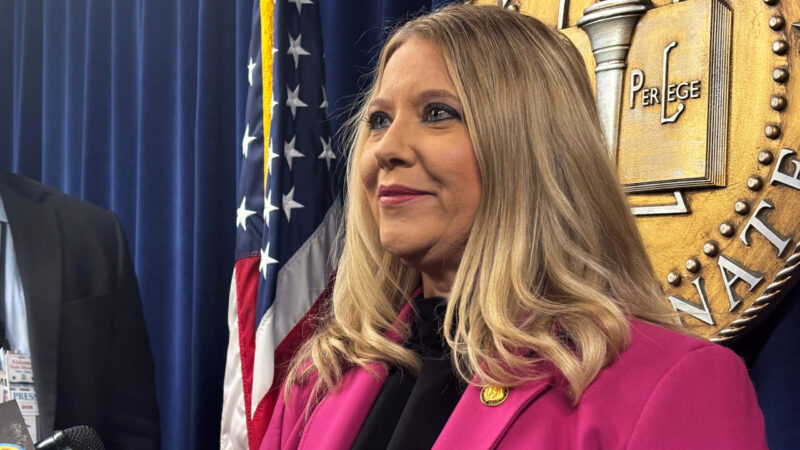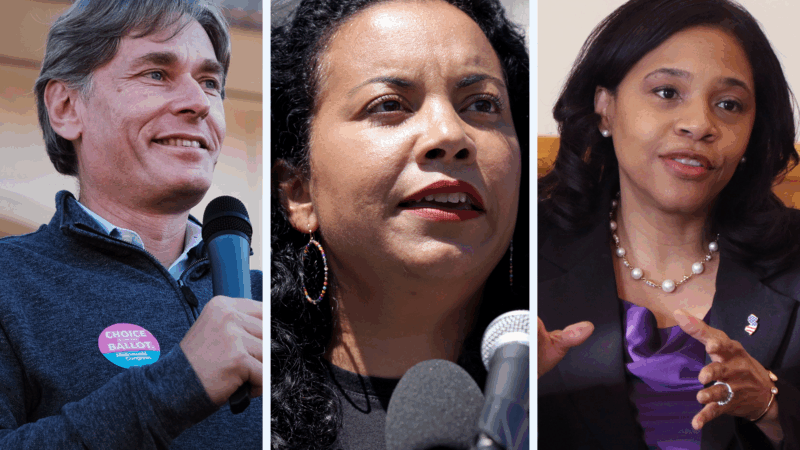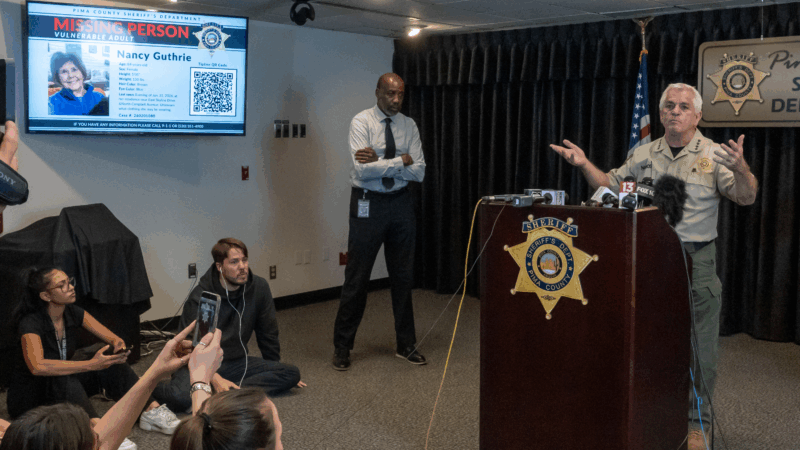Helena Could Be A Model Test Case For Citywide Wi-Fi
In the early 2000s, large cities toyed with the idea of providing free citywide Wi-Fi access to the Internet. The technological obstacles were many, and city after city abandoned the dream. But, in recent years, some areas are taking a second look at citywide Wi-Fi. In Helena, Alabama, a private company thinks it’s up to the task of providing Helena’s 17,000 residents with Wi-Fi, for a profit, all while competing with much larger internet service providers. Les Lovoy reports on how it’s hoping Helena will be a successful test case for citywide Wi-Fi.
Helena is a growing community about 20 miles south of Birmingham. Like a lot of other towns, there are neighborhoods where internet service is difficult to reach or non-existent. And, it can be more than just aggravating. Douglas Jones is the Helena Chief of Police. He knows how important it is to have high-speed internet on the job.
“Case in point, years ago, when I was working, I checked on the identity of a young man that was asleep in a van,” says Jones. “The system was slow that night. He didn’t break any laws, so I let him go. That nest day, they told me it came back up. They said that guy was wanted for murder of a police officer in Illinois.”
Mark Hall, Helena’s Mayor is aware of the need for a high-speed internet connection for public safety, and thinks it can enhance lives in the community. That’s why he was enthusiastic when a private company, GK2, approached him about providing Wi-Fi for certain Helena neighborhoods.
“We said, Wait a minute this is an opportunity to get this for the whole community at one time,” says Hall.
Even with though he was on board, Hall says he was concerned. City-wide wifi systems have a bad reputation. Historically, they just haven’t worked.
“So, we were careful not to use taxpayers funding in this,” says Hall. “This is a complete private operation. They’re offering us services, and in turn they’ll sell subscriptions to subscribers in the area to make their money obviously.”
As soon as Helena gave GK2 the green light, drills started digging deep holes throughout the city. They’re for telephone poles, the homes for Wi-Fi access points. But there are still obstacles to overcome. Eric Fraser is an attorney in Phoenix, specializing in technology law and policy. He recently published an article called, The Failure Of Public Wi-Fi. It documents fumbled public Wi-Fi initiatives from cities across the country.
According to Fraser, it’s very difficult to role out Wi-Fi on a large scale
.
“Now if you’ve ever been to an office building that has Wi-Fi, you’ll see Wi-Fi access points in the ceiling and on the walls every few hundred feet because that’s really what it takes,” says Fraser. “So, to roll it out over a city is a monumentally difficult problem and it’s very expensive, very capital intensive.”
Gerald King is co-founder of GK2. The seven year-old company has some experience in providing Wi-Fi. Locally, they’ve created systems for Barber Motor Sports Park, Talladega Superspeedway, apartment communities and campgrounds. GK2 wanted to gain experience with providing cities with Wi-Fi, and chose Helena as their first effort
.
King says they’ve learned from their mistakes. “With Helena, we’re building out a little slower, then what we would traditionally build out a network, and that’s because we’re paying more attention to details and we’re doing our homework.”
Over the last several months, GK2 has been rolling out the service throughout Helena. The service is being implemented in phases, and a few houses are currently online
.
Steve Sanders is the service’s first customer. He says it’s the only service option he’s had.
“It came in, it’s filled a gap, where all of the big companies, all of the national companies that provide data services have failed to meet my needs,” says Sanders. “They have put up a system that is stable, it works, its fast.”
Technology expert Eric Frasier says, of all the plans he’s seen, Helena has the best chance of success. No government is being money spent. It’s a relatively confined area. No skyscrapers, and a company that finally thinks it’s figured out the technology.
Alabama seek to bring back death penalty for child rape convictions
Alabama approved legislation Thursday to add rape and sexual torture of a child under 12 to the narrow list of crimes that could draw a death sentence.
What a crowded congressional primary in N.J. says about the state of Democrats
The contest is one of the first congressional primaries of the year where we will find out what issues are currently resonating with some Democratic voters. Here are some key things to know.
At NOCHI, students learn the art of making a Mardi Gras-worthy king cake
With Carnival in full swing, the New Orleans culinary school gave its students a crash course — and a rite of passage — in baking their first king cake.
The Winter Olympics in Italy were meant to be sustainable. Are they?
Italy's Winter Olympics promised sustainability. But in Cortina, environmentalists warn the Games could scar these mountains for decades.
Their film was shot in secret and smuggled out of Iran. It won an award at Sundance
Between war, protests and government crackdowns, the filmmakers raced to finish and smuggle their portrait of Tehran's underground arts scene to the prestigious film festival.
Day 5 of search for Nancy Guthrie: ‘We still believe Nancy is still out there’
The FBI is offering a reward of up to $50,000 for information leading to the recovery of Guthrie and/or the arrest and conviction of anyone involved in her disappearance.






